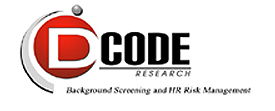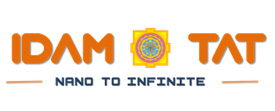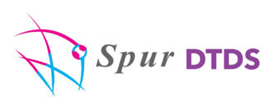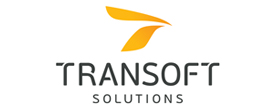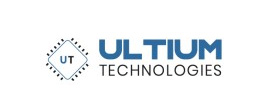Group Audit Services
For companies with multiple entities, we offer group audit services, delivering coordinated audits across subsidiaries to ensure consistent standards and compliance within your organisation.

Group audits are comprehensive assessments of an organisation's operational effectiveness, regulatory compliance, and financial health that involve several businesses or subsidiaries. A group audit, which entails a combined examination of all financial accounts, guarantees that every organisation's entities follow uniform reporting guidelines, such as GAAP (Generally Accepted Accounting Principles) or IFRS (International Financial Reporting Standards). A group audit offers a unified perspective of the company's overall financial performance by examining these aggregated financial reports, which is crucial for investors, stakeholders, and regulatory agencies. Intercompany transactions, currency consolidations, and local compliance are just a few of the complexity covered in the process, which makes sure that every aspect complies with both national and international laws.
With the rise of international firms and intricate corporate structures, where a precise, unified financial picture is crucial, the demand for group audits has increased. Risks of financial misstatements, non-compliance with regulations, and irregular reporting procedures are reduced by a group audit, which can affect investor confidence and company reputation. A group audit provides strategic insights into possible areas for cost-saving and operational efficiency by pointing out inconsistencies and suggesting changes. It is also an essential tool for executive teams, supporting transparent financial governance throughout the company, securing stakeholder confidence, and assisting them in making data-driven decisions.
Our Services
Our group audit services are intended to offer a smooth, legal, and thorough audit experience for all of the companies in your company. Accuracy, transparency, and strategic insights are guaranteed as we collaborate closely with each client to provide tailored solutions that meet the particular requirements of multi-entity systems. Here is an outline of the services we provide under group audit.
| Services | Description |
|---|---|
Consolidated Financial Statement Audits |
We begin with a thorough consultation and define the audit scope, consolidating financial statements across all entities per IFRS or GAAP standards. Our team performs reconciliations, adjusts for intercompany eliminations, and ensures that your financials meet global reporting requirements. |
Intercompany Transaction Audits |
We analyse intercompany transactions to ensure alignment and compliance, conducting transactional testing on high-risk areas. This process includes reconciliation of intercompany accounts and verification of data accuracy across subsidiaries, safeguarding consistency in financial reporting. |
Cross-Border Compliance Verification |
We conduct an extensive review of local and international compliance requirements, verifying adherence to standards across jurisdictions. Our approach includes data collection and secure data-sharing, with an emphasis on regulatory alignment for smooth cross-border operations and risk reduction. |
Internal Control Evaluation & Risk Assessment |
We assess internal controls across subsidiaries, evaluating their effectiveness in mitigating financial risks. Using risk-based audit techniques, we test transactions, detect anomalies, and recommend improvements to enhance your organisation's overall financial resilience and compliance. |
Subsidiary and Component-Level Audits |
Our team performs in-depth audits of each subsidiary and component, starting with a pre-audit consultation to define entity-specific audit needs. This ensures accuracy in reporting across all levels, providing management with a transparent, consolidated view of the organisation's financial health. |
Currency Consolidation & Foreign Exchange Analysis |
We handle currency conversions and foreign exchange adjustments, ensuring seamless consolidation of financial statements. This includes transactional testing for currency accuracy and cross-border alignment, providing a comprehensive financial view despite multi-currency complexities. |
Transfer Pricing Compliance |
We review transfer pricing documentation and conduct compliance testing to verify adherence to international standards. Our process includes reconciliation of intercompany pricing, compliance checks, and identification of potential risks associated with non-compliance in transfer pricing practices. |
Audit Coordination with Global Entities |
We coordinate audits across all global entities, facilitating smooth data collection and ensuring adherence to local audit protocols. By managing communication with in-country auditors, we provide a cohesive, consolidated report that meets both local and international standards. |
Stakeholder and Investor Reporting Support |
We offer customised reporting solutions that align with stakeholder needs, including detailed, consolidated audit findings. Our reports provide insights into the organisation's risk profile and performance, equipping investors and stakeholders with transparent, data-driven analysis. |
Tax Compliance & Cross-Border Tax Audit |
We integrate tax compliance audits to mitigate tax-related risks, conducting thorough reviews of local and international tax filings. This service includes compliance verification, tax risk assessment, and recommendations for strengthening cross-border tax adherence across all entities. |
Why Choose Benchmark
Choosing a reliable partner for group audit services is essential for ensuring accuracy, compliance, and transparency across all facets of your organisation. Our experienced audit team combines technical expertise and industry knowledge to manage the complexities of group audits, delivering cohesive, consolidated reports that meet both domestic and international standards.
- Expertise in IFRS and GAAP consolidation
- Comprehensive intercompany transaction analysis
- Robust risk assessment and control evaluation
- Cross-border regulatory compliance and alignment
- Secure data handling and confidentiality protocols
- Tailored audit methodologies for complex corporate structures
- In-depth financial reporting and stakeholder transparency
- Ongoing post-audit advisory and compliance support
Documents Required
We need particular documentation that gives us a complete picture of every entity in your company in order to do an exhaustive and legal group audit. We can analyse risk, determine financial integrity, and guarantee uniform reporting across all subsidiaries and components thanks to these records.
| Documents | Description |
|---|---|
| Entity Financial Statements | Year-end financial reports from each subsidiary, detailing income, expenses, assets, and liabilities. |
| Audit Working Papers | Previous audit records and workpapers that provide context and continuity for the current audit. |
| Intercompany Transaction Records | Detailed records of transactions between entities to verify accuracy and compliance in consolidated reporting. |
| Tax Filings and Compliance Reports | Tax records for each entity to ensure adherence to local and international tax regulations. |
| Internal Control Documentation | Documentation of internal controls, policies, and procedures to evaluate risk and control effectiveness. |
| Corporate Governance Reports | Reports on the organisation's governance structure to ensure ethical and regulatory compliance. |
| Legal and Regulatory Compliance Documents | Proof of compliance with industry-specific regulations and local statutory requirements. |
| Transfer Pricing Documentation | Records of transfer pricing policies and practices to assess alignment with international standards. |
| Currency Exchange and Foreign Transaction Records | Records related to foreign exchange transactions and currency consolidations for accurate financial reporting. |
| Management Letters and Board Reports | Communications between management and the board of directors to provide insight into internal oversight. |
| HR and Payroll Records | Payroll documentation to ensure compliance in employee compensation across all entities. |
Our Process
To deliver precise insights across your group entities, we rigorously examine intercompany transactions, compliance, and consolidated reporting standards. These are the steps we follow to conduct a thorough Group Audit.
- Define Group Audit Scope & Objectives Across Entities
- Conduct Risk Assessment for Each Subsidiary
- Evaluate Intercompany Transactions & Consolidation Practices
- Assess Compliance with Group Accounting Standards
- Coordinate Audit Requirements with Local Auditors
- Perform Consolidated Financial Statement Testing
- Identify & Address Intra-group Financial Discrepancies
- Provide Comprehensive Group Audit Report & Recommendations
Compliance and Reporting Standards in India
In the Indian economy, businesses have to strictly follow the legal compliance and reporting standards that ensure your business's financial transparency, regulatory adherence and investor confidence. Group audits must follow multiple legal frameworks including the Companies Act, of 2013, Indian Accounting Standards (Ind AS), the Income Tax Act, of 1961, GST laws, and the Foreign Exchange Management Act (FEMA, 1999).
Below are the key compliance and reporting standards applicable to group audits in India:
Indian Accounting Standards (Ind AS) and IFRS Alignment
- Ind AS is largely converged with IFRS for consistency in financial reporting.
- Companies must follow Ind AS 110 for Consolidated Financial Statements (CFS).
- Adjustments for fair value, revenue recognition, and financial instruments must be considered.
Companies Act, 2013 – Audit and Reporting Requirements
- Section 129: Consolidated financial statements (CFS) are mandatory for groups with subsidiaries, JVs, or associates.
- Section 134: The Board of Directors must approve and certify financial statements.
- Section 143: The Auditor's report must cover consolidated financials and entity-level compliance.
Audit Reporting as per ICAI Standards
- SA 600: Guidelines on using work from component auditors in a group audit.
- SA 315 & SA 330: Risk-based audit approach to detect material misstatements.
- SA 700: Standard format for audit opinions on consolidated financials.
Tax Compliance – Income Tax Act, 1961
- Section 44AB: Tax audits are required for companies exceeding specified turnover limits.
- Section 92E: Mandatory transfer pricing audit for international transactions.
- Minimum Alternate Tax (MAT) under Section 115JB must be factored into financial reporting.
GST Compliance in Multi-Entity Audits
- GST reconciliation for multi-location entities and Input Tax Credit (ITC) adjustments.
- Annual GST Return (GSTR-9) and GST Audit (GSTR-9C) must be incorporated.
- Cross-border GST compliance for exports and imports under IGST framework.
Foreign Exchange and FEMA Compliance
- FEMA, 1999 governs foreign transactions, repatriation, and foreign borrowings.
- Annual FLA (Foreign Liabilities and Assets) return filing for foreign investments.
- Compliance with Overseas Direct Investment (ODI) and External Commercial Borrowings (ECB) norms.
Transfer Pricing Regulations
- Compliance with Rule 10D of Income Tax Rules, 1962 for transfer pricing documentation.
- Mandatory reporting of related-party transactions to prevent tax evasion.
- Alignment with OECD BEPS (Base Erosion and Profit Shifting) guidelines for MNCs.
Corporate Governance and SEBI Regulations (For Listed Companies)
- SEBI (LODR) Regulations, 2015: Listed entities must follow disclosure norms for group entities.
- Related Party Transactions (RPT) Reporting is mandatory under SEBI norms.
- An internal financial control (IFC) audit is required for listed and large unlisted entities.
Non-Compliance Issues
Non-compliance in group audits can lead to serious financial, regulatory, and reputational risks for organisations. Failure to adhere to regulatory standards, inaccuracies in consolidated reporting, or weaknesses in internal controls can compromise the integrity of financial statements and expose the organisation to penalties and loss of stakeholder trust. Below are some of the key non-compliance issues that may arise in group audits:
- Inconsistent financial reporting across entities
- Non-adherence to IFRS or GAAP standards
- Unreconciled intercompany transactions
- Incomplete or insufficient internal control documentation
- Lack of compliance with local regulatory requirements
- Inaccurate currency conversion and foreign exchange reporting
- Failure to adhere to transfer pricing regulations
- Insufficient disclosure of related party transactions
Conclusion
Your multi-entity organisation's financial integrity, regulatory compliance, and strategic alignment depend on a thorough group audit. Our experienced staff is committed to providing a thorough, open audit process that improves the financial health of your company, reduces risks, and facilitates well-informed decision-making. We give you the assurance and insights you need to handle complicated financial environments with confidence thanks to our dedication to accuracy, security, and client-focused service.
Get in Touch
Contact us today to discuss your group audit needs and discover how our tailored solutions can support your organisational goals and compliance requirements.
FAQs
How long does a group audit usually take?
The timeline depends on the complexity and size of the organisation, but group audits generally take several weeks to a few months.
Can group audits be customised to meet specific regulatory requirements?
Absolutely. Group audits are tailored to meet the unique regulatory requirements of each jurisdiction involved.
What are the primary risks of not conducting a group audit?
Risks include inaccurate financial reporting, non-compliance with regulatory standards, and potential legal penalties.
Is a group audit required every year?
While it's not always mandatory, annual group audits are recommended to maintain accuracy and regulatory compliance.
Can a group audit identify areas for cost reduction?
Yes, group audits often highlight operational inefficiencies, providing insights for cost-saving measures across entities.









